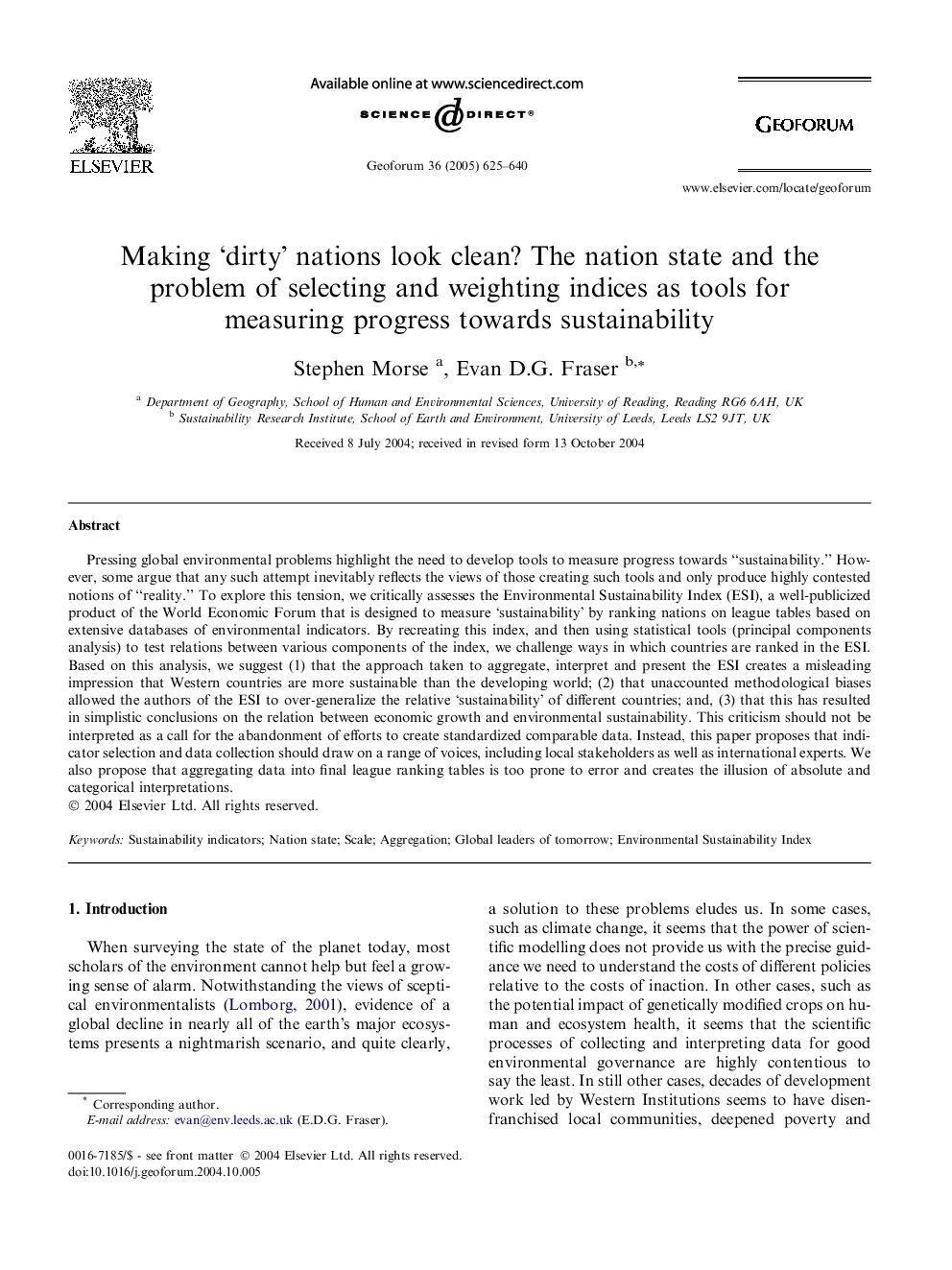| Article ID | Journal | Published Year | Pages | File Type |
|---|---|---|---|---|
| 9552292 | Geoforum | 2005 | 16 Pages |
Abstract
Pressing global environmental problems highlight the need to develop tools to measure progress towards “sustainability.” However, some argue that any such attempt inevitably reflects the views of those creating such tools and only produce highly contested notions of “reality.” To explore this tension, we critically assesses the Environmental Sustainability Index (ESI), a well-publicized product of the World Economic Forum that is designed to measure 'sustainability' by ranking nations on league tables based on extensive databases of environmental indicators. By recreating this index, and then using statistical tools (principal components analysis) to test relations between various components of the index, we challenge ways in which countries are ranked in the ESI. Based on this analysis, we suggest (1) that the approach taken to aggregate, interpret and present the ESI creates a misleading impression that Western countries are more sustainable than the developing world; (2) that unaccounted methodological biases allowed the authors of the ESI to over-generalize the relative 'sustainability' of different countries; and, (3) that this has resulted in simplistic conclusions on the relation between economic growth and environmental sustainability. This criticism should not be interpreted as a call for the abandonment of efforts to create standardized comparable data. Instead, this paper proposes that indicator selection and data collection should draw on a range of voices, including local stakeholders as well as international experts. We also propose that aggregating data into final league ranking tables is too prone to error and creates the illusion of absolute and categorical interpretations.
Related Topics
Social Sciences and Humanities
Economics, Econometrics and Finance
Economics and Econometrics
Authors
Stephen Morse, Evan D.G. Fraser,
